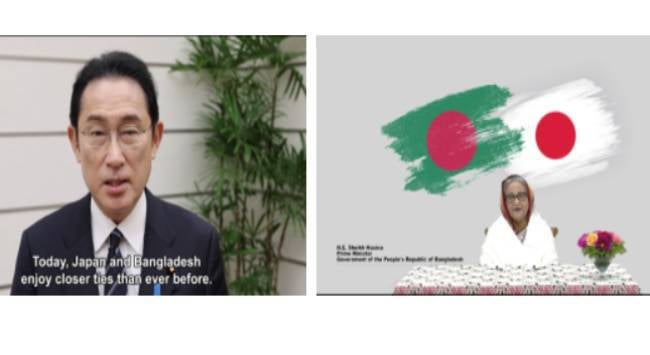Sheikh Hasina’s Japan Trip Postponed:
Geopolitical Pressure versus Domestic Politics
Mohammad Masudur Rahman
12 January 2023Summary
Bangladesh’s Prime Minister Sheikh Hasina was scheduled to visit Japan in late November 2022. However, she decided to postpone the trip late in the day. Given Bangladesh’s heavy dependence on Japanese investment and official development assistance, the visit would have been important for Bangladesh’s economic development and for enhancing ties with Japan.
Japan has been Bangladesh’s most important development and trusted partner over the last five decades and both sides recently celebrated 50 years of bilateral diplomatic relations. However, this long-standing friendship seems at a crossroads now. Bangladesh’s Prime Minister Sheikh Hasina was scheduled to make a state visit to Tokyo from 29 November to 1 December 2022. However, this was cancelled at the last moment, causing some tension on both sides.
Bangladesh’s Foreign Minister A K Abdul Momen told the media that Dhaka decided to postpone the trip, considering the ongoing political issues within the Japanese government and Tokyo’s mandatory quarantine due to COVID-19-related restrictions. However, the Japanese had a different reasoning for the postponement and it concerned the last elections in Bangladesh. Japanese Ambassador to Bangladesh, Ito Naoki, stated that he heard Bangladesh police officers filling out ballot boxes during the last general elections – something he had never heard happening in any other country. These remarks were a clear signal to the Bangladesh government to hold fair and inclusive elections scheduled for January 2024 – a fair, inclusive credible election is vital for Bangladesh’s democracy and stability.
Internationally, Bangladesh is more susceptible to Chinese and Russian influence, as compared to leaning towards Japan and its allies. China has implemented many mega projects and is the top investment partner for Bangladesh. Russia has been Bangladesh’s tested and trusted partner since the latter’s independence. Bangladesh has taken a US$12 billion (S$15.6 billion) loan from Russia to build its first-ever nuclear power plant at Rooppur. The plant is being built by Rosatom, Russia’s state-owned nuclear energy corporation.
Bangladesh has declared that the Indo-Pacific alignment, which is Japan’s brainchild, is not for it. Japanese’s recent effort to forge a stronger strategic relationship by offering to sell military and security equipment to the Bangladesh Air Force has put pressure on Dhaka’s strategic relationship with Beijing and Moscow, something it is not comfortable with.
Having said that, Japan is one of Bangladesh’s most influential official development assistance partners – its contribution to Dhaka over the past 50 years (as of June 2021) was about US$18 billion (S$23 billion). Bangladesh’s external debt portfolio is dominated by World Bank loans which is 36 per cent of its total external debt while the second highest multilateral source of external borrowing is the Asian Development Bank. However, Japan is the topmost bilateral source of external financing, which is nine per cent of Dhaka’s total external borrowing, while borrowing from China and Russia only adds up to seven per cent of Bangladesh’s total external debt. According to the Japan International Cooperation Agency report (2022), Japan has supported the development of 2,343 megawatts of power generation capacity in Bangladesh, which is about 10 per cent of the country’s total power capacity in 2021. Japan has also supported the construction and rehabilitation of more than 25,000 kilometres of power distribution and 109 substations for power distribution. The report also mentioned Japan contributing to the construction of 134 bridges in Bangladesh.
Recently, Japan approved a loan of approximately US$1.2 billion (S$1.6 billion) to construct the Matarbari deep seaport and Araihazar Special Economic Zone. Currently, three mass rapid transit projects are under construction by three Japanese firms – Marubeni Corporation, Kawasaki Heavy Industries and Mitsubishi Corporation. In addition, bilateral trade amounted to about US$3.7 billion (S$4.8 billion) in 2021, with Bangladesh’s exports to Japan making up about US$1.5 billion (S$1.9 billion).
Bangladesh’s economy is currently under tremendous stress due to external twin shocks – the COVID-19 pandemic and the Russia-Ukraine war – and fraud and scams in the domestic banking sector, which has further fuelled the recent political unrest. Inflation and living costs have been rising continuously, which could turn into a political crisis at any time. Exports and remittance, Bangladesh’s main economic strengths, have been declining. Bangladesh’s currency, the Bangladesh Taka, has depreciated significantly and the foreign exchange reserve has been falling continuously. While the government has managed to borrow about US$4.5 billion (S$5.9 billion) from the International Monetary Fund, this is a temporary measure to ease the balance of payment situation.
Hasina’s visit to Tokyo could have had a positive impact on Bangladesh-Japan ties – it would have increased bilateral trade and investment as well as strengthen their strategic relationship in the face of Bangladesh’s efforts to balance its relationship with India and China through extended relationships with other countries. Japan has also been an important development partner for Bangladesh in the last five decades. The postponement of the visit by Hasina was a great opportunity missed for Dhaka to take the relationship forward with Tokyo.
. . . . .
Dr Mohammad Masudur Rahman is a Visiting Research Fellow at the Institute of South Asian Studies (ISAS), an autonomous research institute in the National University of Singapore (NUS). He can be contacted at masudrahman@nus.edu.sg. The author bears full responsibility for the facts cited and opinions expressed in this paper.
Pic Credit: Embassy of Japan in Bangladesh.
-
 More From :
More From :
-
 Tags :
Tags :
-
 Download PDF
Download PDF



